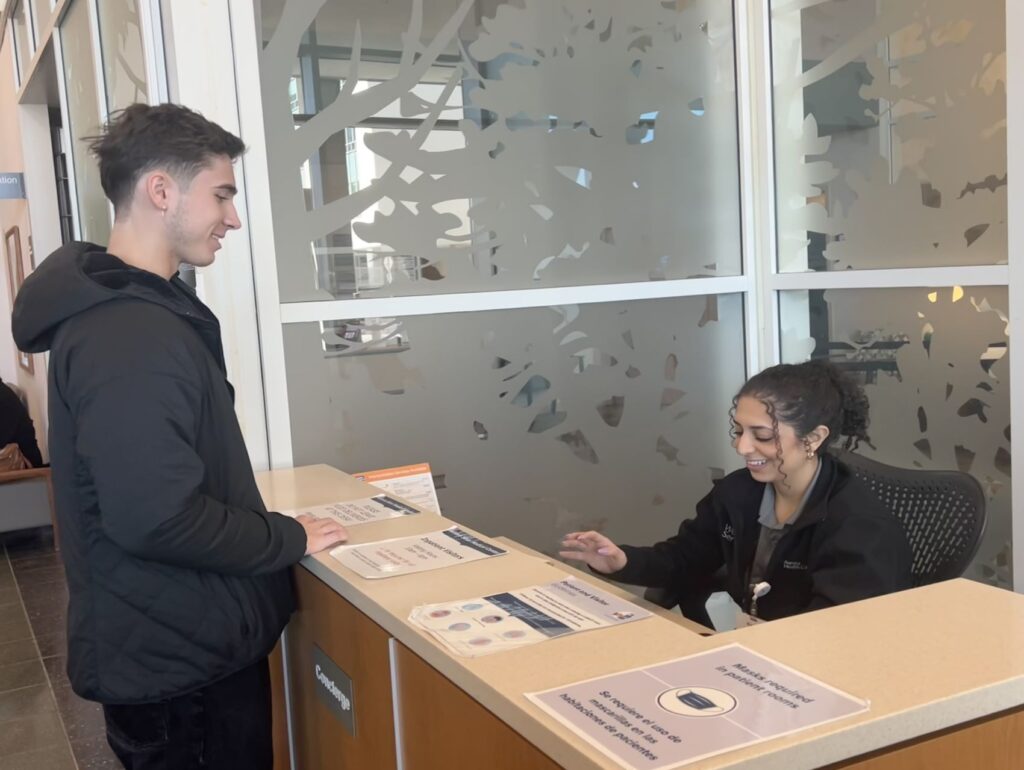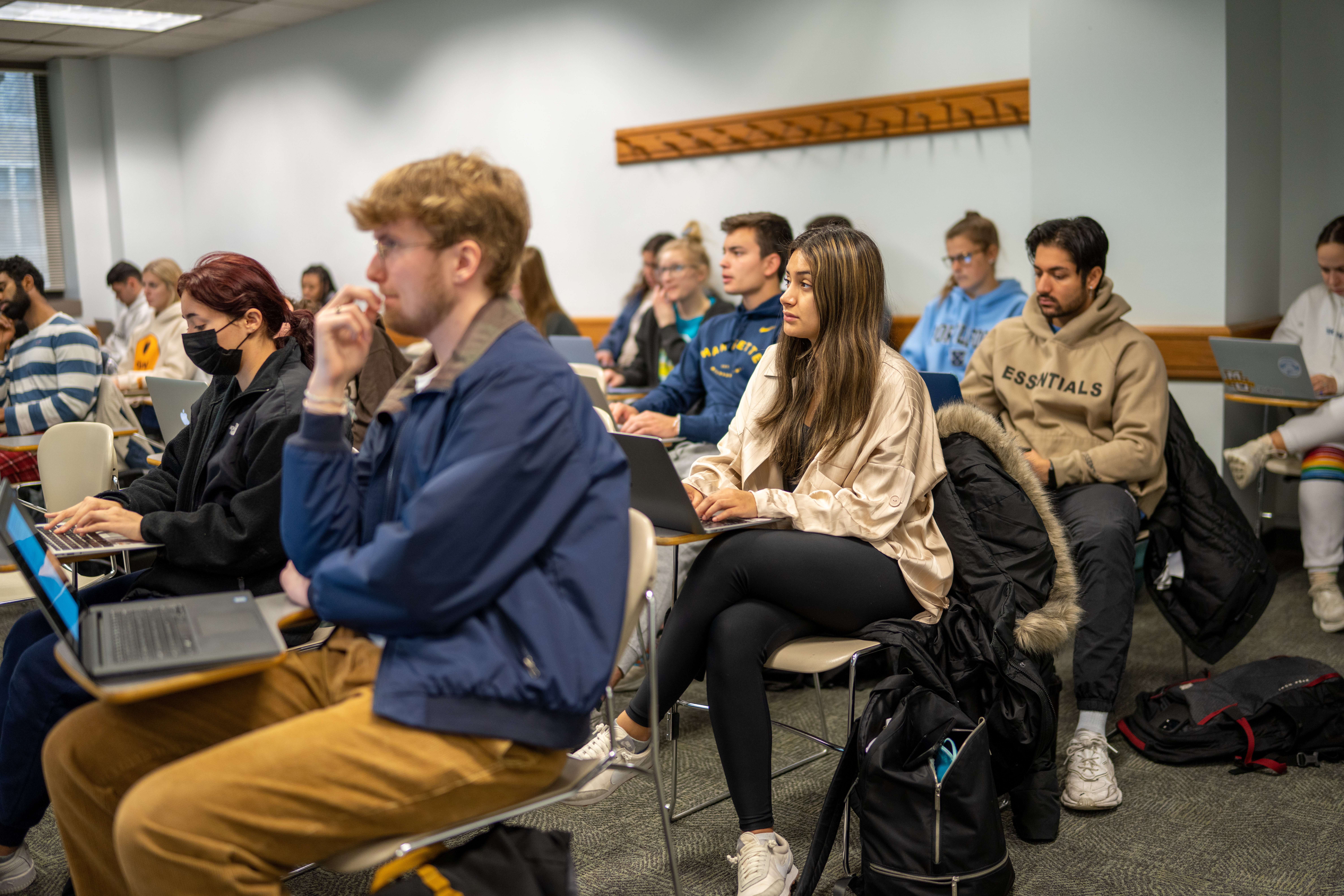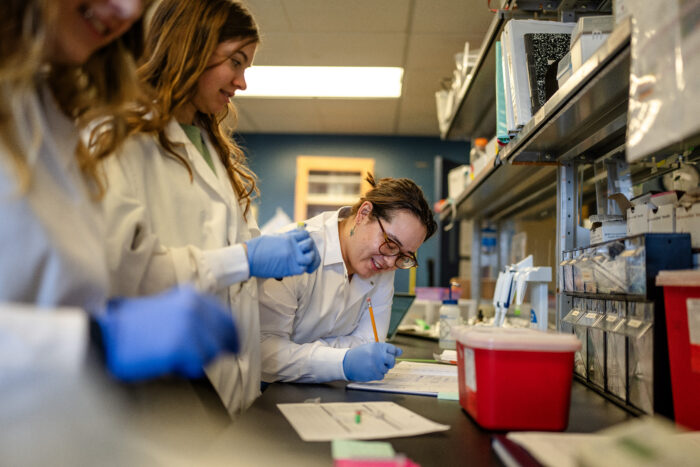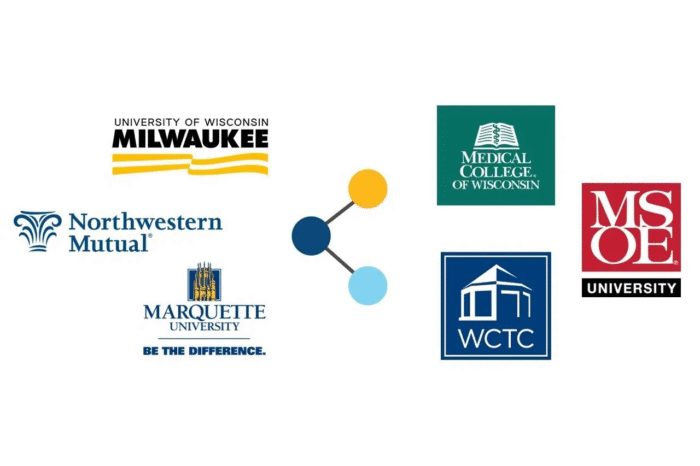Every Tuesday morning in the fall of 2023, freshman Jane Harvey would pack her bag and head to Doerfler School, a bilingual Milwaukee Public School on the city’s south side. As a part of the English 1001 Foundations in Rhetoric class, Harvey worked as a classroom assistant for the service learning component of the required English course.

“During my visits, I was placed in the same fifth-grade classroom each week, which had about 20 students in the class,” the statistical science major explained. “I taught math lessons and tutored students in small groups, mostly in math because of my major. However, there were some weeks where the students needed help with spelling or grammar, as well.”
Through Marquette’s Service Learning Program, now in its 30th year, Harvey connected with the Milwaukee community in ways she never imagined. She’s now planning on extending her community service into the spring semester.
“My advice to students taking English 1001 in the future is to take advantage of the opportunity to do service learning,” Harvey says. “Instead of seeing it as a box to check off for your final grade, look at it as a truly meaningful experience for you and those you serve.”
A future based in service
The Foundations in Rhetoric class is just one example of how the Service Learning Program connects with students. Each semester, an average of 800 students participate in service learning and serve with over 100 community partners throughout the Milwaukee area.
For the past 22 years, Kim Jensen Bohat, director of the Service Learning Program, has helped connect faculty who are interested in integrating service learning in their curriculum with appropriate community partners.
“Our primary goal is to provide experiential learning experiences that enhance, support and build the academic courses the students are doing service learning for,” Jensen Bohat explains. “In a way, service learning operates as a course-based mini-internship. Students are not graded for their service — they are graded for the learning that comes from their service and engagement.”
Last fall, Foundations in Rhetoric Director Lilly Campbell and Assistant Director Jenna Green worked with Jensen Bohat to support multiple sections of the class in integrating service learning for the first time. The group included seven faculty members teaching 10 service learning sections of English 1001 to around 200 students. During a pilot program, each instructor picked a theme on which to focus their community partnerships and teaching —such themes included food insecurity, literacy and health.

“In creating the curriculum, we drew on tools from the Jesuit tradition that can enable faculty and students to enter into community engagement with curiosity, humility and a critical awareness,” Green says. “These tools include the cycle of reflection derived from the Spiritual Exercises and a commitment to ‘accompanying youth toward a hope-filled future,’ one of the Society of Jesus’ four Universal Apostolic Preferences. Specifically, we hoped that engaging with and sharing stories with the community would help students connect with their capacity to hope.”
Green is optimistic that this initial service experience is only the beginning for students like Harvey, who know that serving in a community early on in their Marquette education is providing a foundation for future connections.
“One of the biggest things that I learned from the collaboration was to engage and connect with people of different backgrounds,” Harvey says. “Being able to connect with different parts of the city and the people who live here is one of the most valuable things I will take away from my service learning course.”



